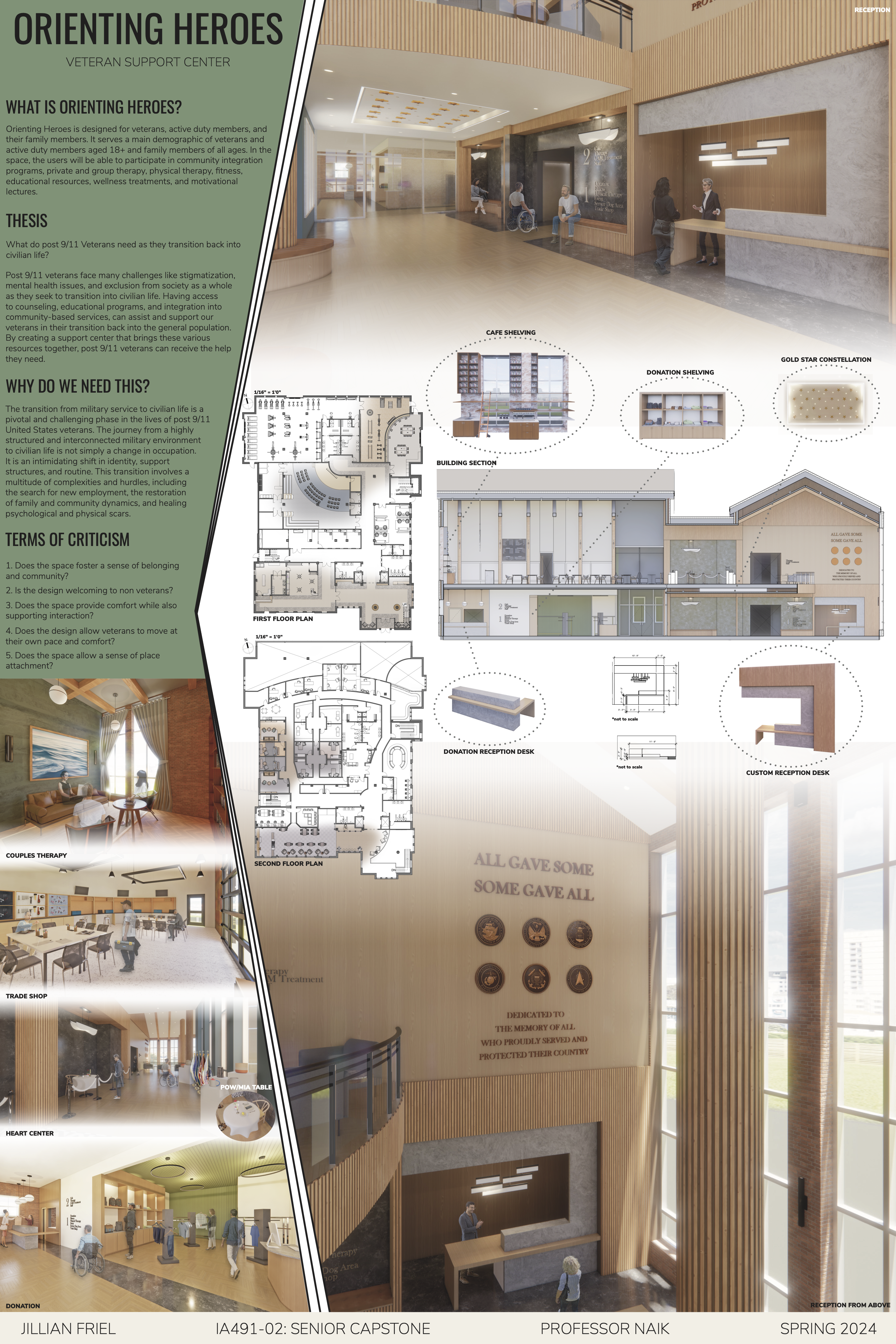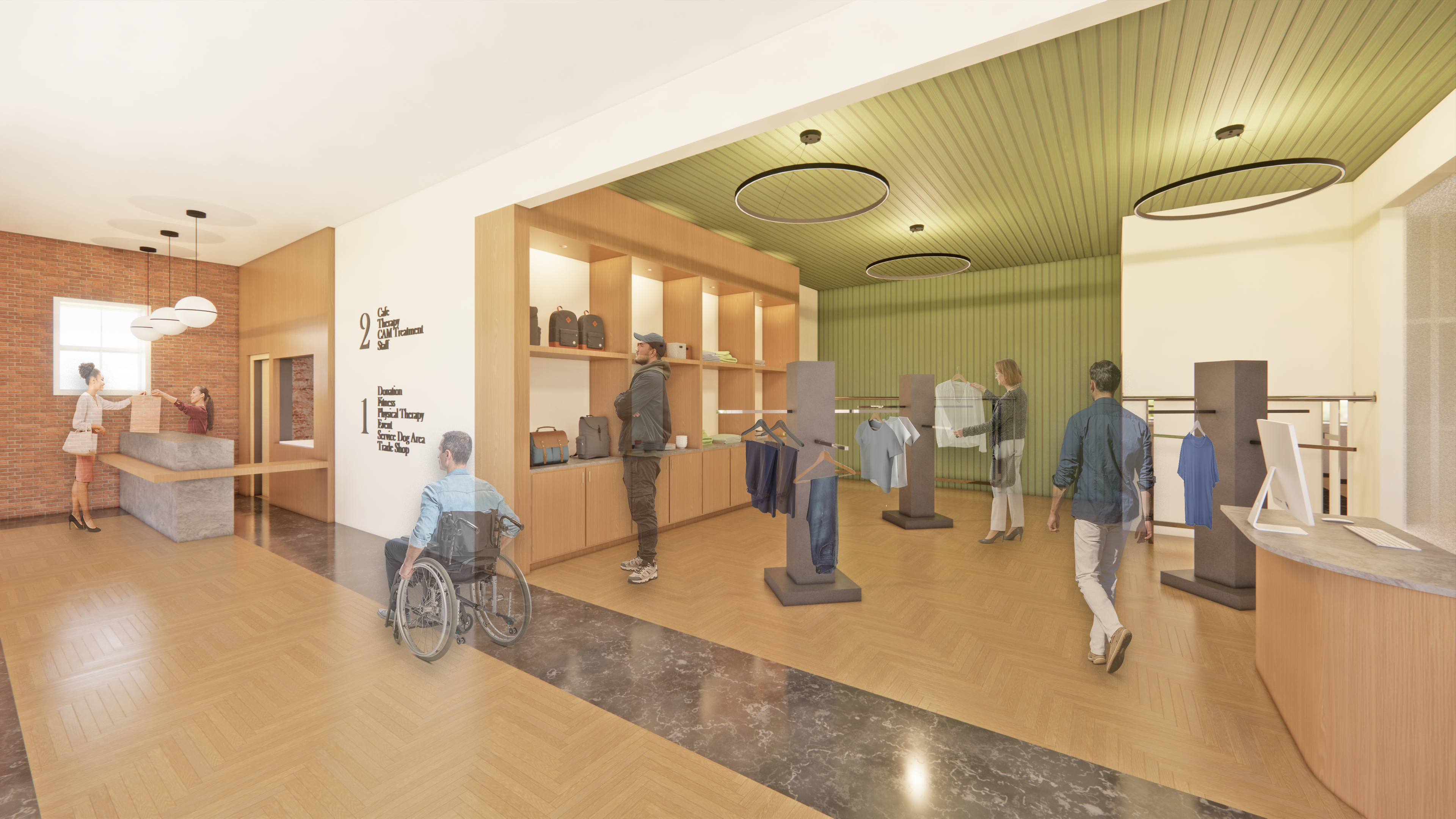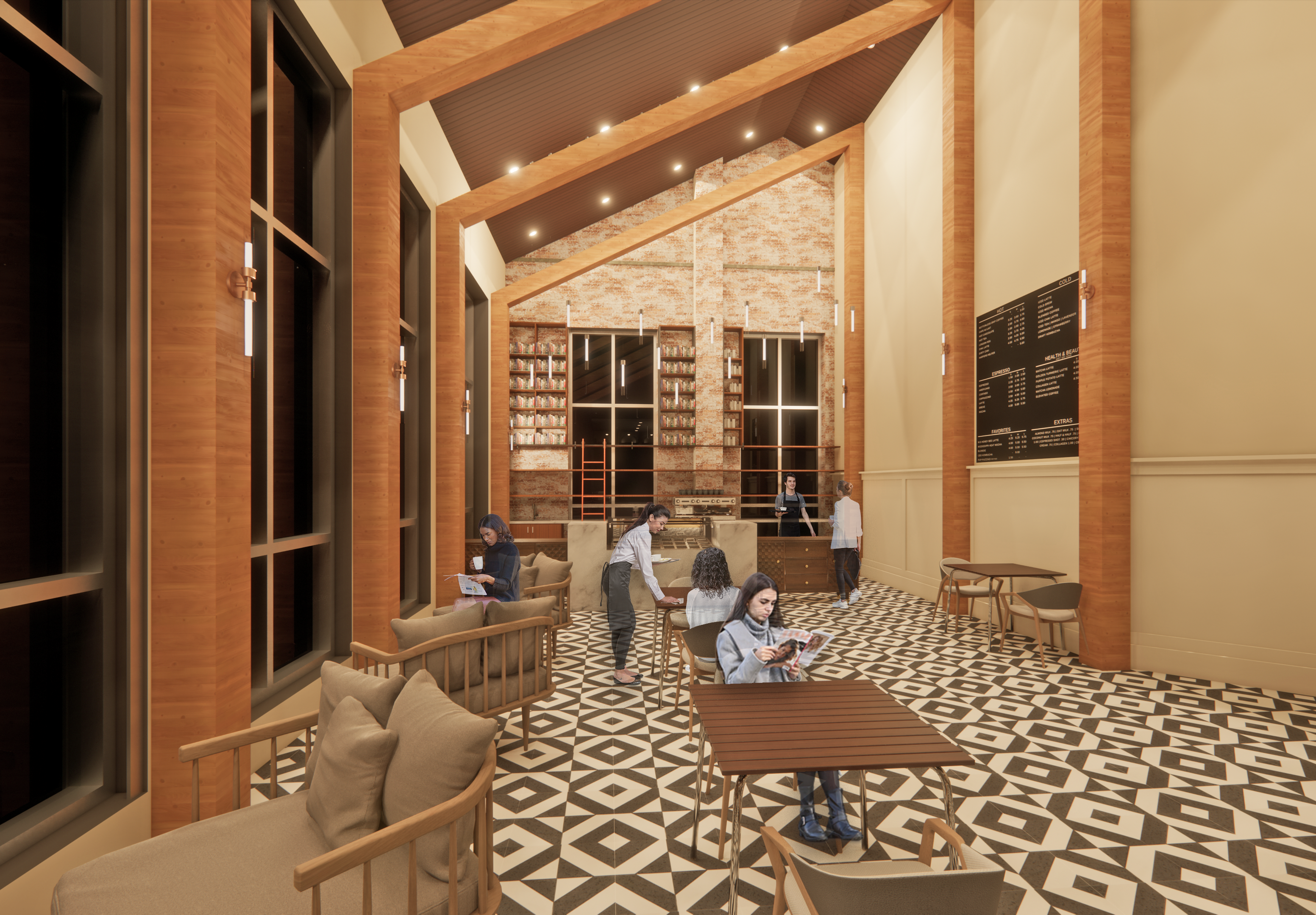Artist Biography
Jillian will be graduating from Endicott in May with a Bachelor of Fine Arts in Interior Architecture. During her time at Endicott she has been recognized on the Dean’s List, and is also a member of the Kappa Pi Honors Society. The internship program has given her the opportunity to work for three companies, all of which have taught her valuable information for when she enters the workforce post graduation. Jillian will be returning to Endicott in the fall to pursue a Masters of Business Administration with a concentration in Construction Management. Jillian hopes to combine her love of design and construction in her professional career.
Thesis Abstract
The transition from military service to civilian life represents a significant and multifaceted challenge for post 9/11 veterans. This study explores the various challenges faced by these veterans, including stigmatization, mental health issues, and societal exclusion, as they seek to reintegrate into civilian society. The research argues that the journey from a structured military environment to civilian life is not merely an occupational change but involves a profound shift in identity, support systems, and daily routines. The central thesis posits that providing post 9/11 veterans with access to counseling, educational programs, and community-based services can significantly aid their transition and support their reintegration into society. These resources address the unique needs of veterans, offering tailored support for mental health issues, employment opportunities, and community engagement. To facilitate this support, the study proposes the establishment of a comprehensive support center that consolidates these essential resources. Such a center would serve as a one-stop-shop for veterans, streamlining access to critical services and fostering a supportive community environment. Through a mixed-methods approach, combining qualitative interviews with quantitative surveys, this research seeks to identify the specific needs and preferences of post 9/11 veterans during their transition process. By understanding these needs, policymakers, healthcare providers, and community organizations can develop targeted interventions and programs that better serve this population. In conclusion, this thesis advocates for a holistic approach to supporting post 9/11 veterans in their transition back into civilian life. By integrating counseling, education, and community-based services, we can create a more supportive and inclusive environment for our veterans, facilitating their successful reintegration into society.



